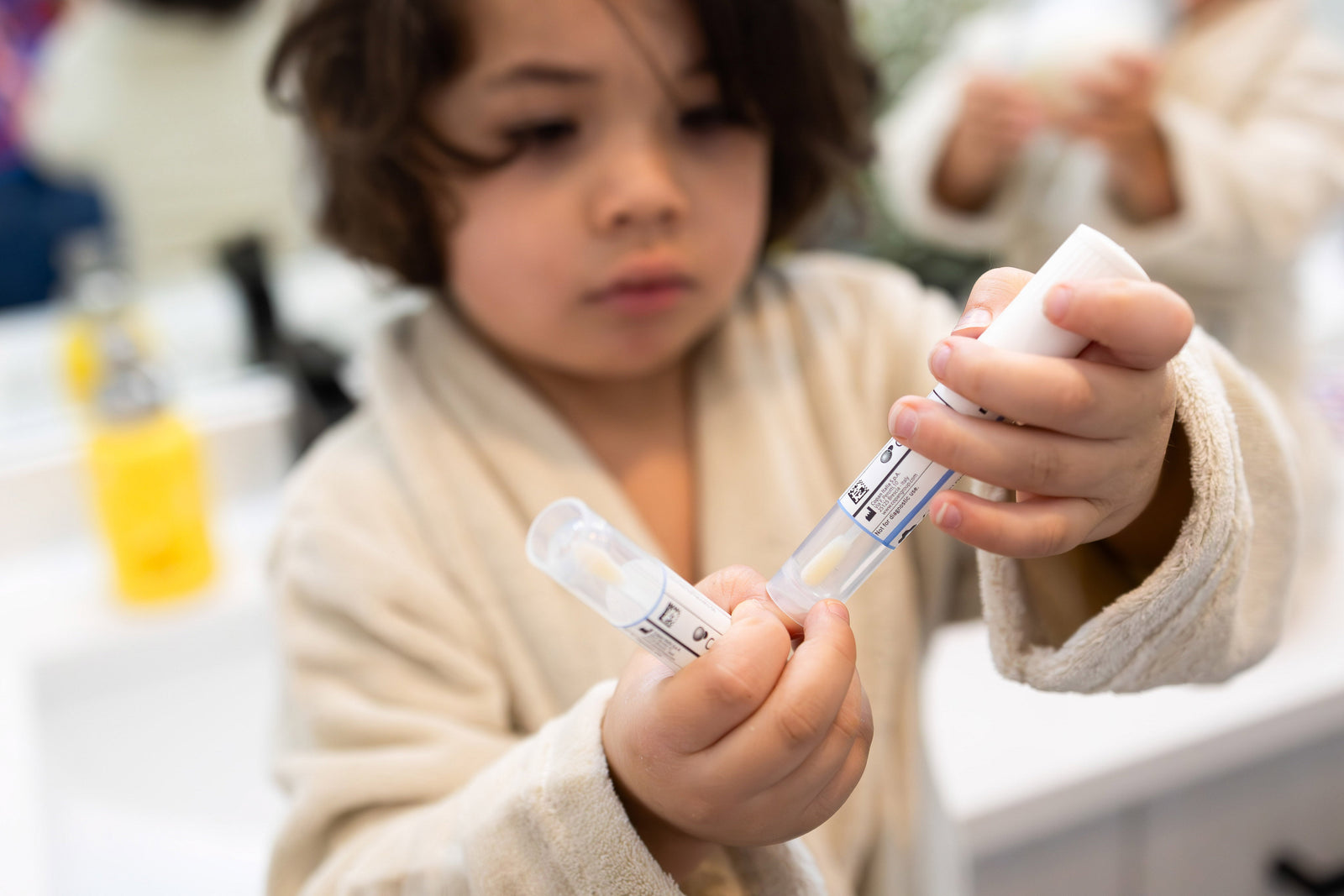Your Cart is Empty
Continue shoppingCan Infants Take Probiotics?
Medically Reviewed by May Zhu, RDN | Published May 23, 2024
share this article

The interest in probiotics has surged in recent years due to their potential health benefits. While probiotics are commonly used by adults, many parents wonder whether they are safe and beneficial for infants. This blog explores the safety, benefits, and considerations of giving probiotics to infants, supported by the current published scientific research and data.
What Are Probiotics for Infants?
Probiotics are live microorganisms that provide health benefits when consumed in adequate amounts. These beneficial bacteria and yeasts help balance the gut microbiome, which plays a crucial role in digestion, immunity, and overall health.
Daily reads to help your little ones lead happier and healthier lives.
Buy Now
Join the
Happy Gut Club
Are Probiotics Safe for Infants?
Several studies have investigated the safety and efficacy of probiotics in infants, and the results are generally positive.
-
Safety Profile: According to a review in thePediatrics journal, probiotics are considered safe for infants when administered in appropriate doses [1]. The review analyzed multiple studies and found no significant adverse effects related to probiotic supplementation in infants. However, it is essential to choose strains that are specifically studied and proven safe for infants.
-
Immune System Support: Infants are born with an immature immune system that develops over time. Probiotics can help boost the immune system by promoting the growth of beneficial gut bacteria. A study published in Clinical and Experimental Allergy found that probiotic supplementation in infants reduced the incidence of eczema and other allergic reactions, suggesting an enhanced immune response [2].
-
Digestive Health: Probiotics are well-known for their digestive benefits. In infants, they can help alleviate common issues such as colic, diarrhea, and constipation. A study in the Journal of Pediatrics showed that infants who received probiotics experienced a significant reduction in crying time due to colic compared to those who did not receive probiotics [3]. Another study in. Pediatrics reported that probiotics reduced the duration of acute diarrhea in infants by about 1 day [4].
-
Gut Microbiome Development: The gut microbiome of infants undergoes significant changes during the first year of life. Probiotics can support the development of a healthy gut microbiome. Research in the Journal of Nutrition indicated that probiotics helped increase the abundance of beneficial bacteria such as Bifidobacterium and Lactobacillus in infants' guts, promoting better digestive health and nutrient absorption [5].
-
Antibiotic-Associated Diarrhea: Antibiotic treatment can disrupt the gut microbiome and lead to diarrhea. Probiotics can help mitigate this side effect. A meta-analysis in the American Family Physician journal concluded that probiotics are effective in preventing antibiotic-associated diarrhea in infants, with a relative risk reduction of 48% [6].
Considerations for Giving Probiotics to Infants
While probiotics offer numerous benefits, there are important considerations to keep in mind:
Consultation with a Pediatrician: Before starting any probiotic supplementation, it is crucial to consult with a pediatrician. They can recommend appropriate strains and dosages based on the infant's health needs.
Choosing the Right Strains: Not all probiotics are suitable for infants. Strains such as Bifidobacterium infantis, Lactobacillus rhamnosus, and Lactobacillus reuteri are commonly studied and found beneficial for infants.
Quality and Purity: Ensure that the probiotic product is of high quality and free from harmful additives. Look for products that have undergone rigorous testing and are specifically formulated for infants.
Summary
Probiotics can be a safe and beneficial addition to an infant's diet, supporting immune health, digestive function, and overall well-being. However, it is essential to consult with a pediatrician and choose the right strains and products. By doing so, parents can help their little ones enjoy the potential benefits of probiotics while ensuring their safety and health.

Author
May Zhu, RDN
Trending

Why Parents Are Choosing Prebiotics Over Stool Softeners for Kids
read now
Oxalates and Kids' Digestion: How High-Oxalate Foods Contribute to Constipation and Gut Discomfort
read now
5 Signs Your Toddler Needs a Poop Test
read now






